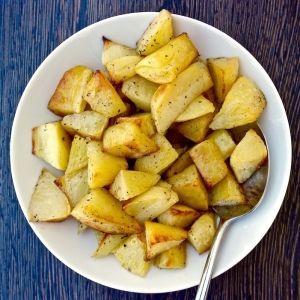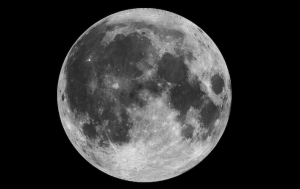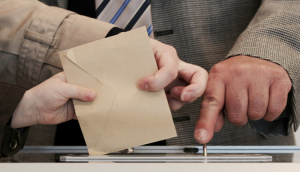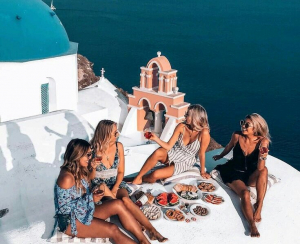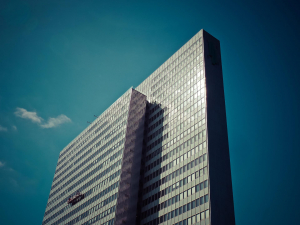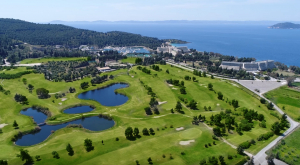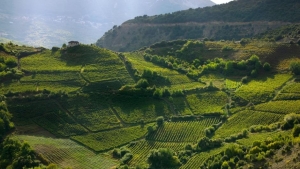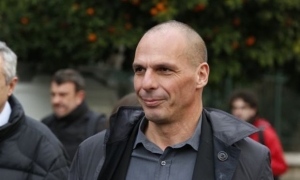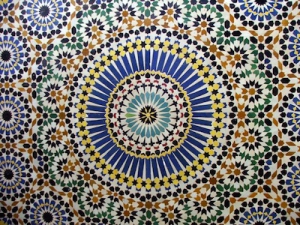XpatAthens
Patates Fournou - Greek Roasted Potatoes With Lemon & Garlic
Difficulty: Easy
Cooks in: 45 minutes
- 2 pounds potatoes cut in small wedges (if long cut wedges in half)
- ½ cup olive oil
- 2-3 teaspoons dry oregano
- 1-2 tablespoons lemon juice
- 3 cloves
- 3 allspice
- 2 garlic cloves quartered
- ½ teaspoon salt
- freshly ground pepper
Supermoon Phenomenon Revealed A New Beach In Nafplio
Nike Congratulates Giannis Antetokounmpo With Inspiring Video
However, the top of the NBA isn't the only peak he has conquered; at the top of Mount Olympus, the tallest point in Greece, Nike made an honorary gesture to celebrate the "Greek Freak" and his recent accomplishments.
For the video, Nike "placed" a basketball hoop at the highest peak in Greece. Written on the hoop is an inscription that reads, 'Fate can start you at the bottom. Dreams can take you to the top.'
With a height of approximately 9,577 feet, Olympus is an iconic location of Greek mythology, also known as the home of the ancient Greek gods.
Earlier this week, Nike released another inspiring video dedicated to Antetokounmpo, which has earned thousands of views on social media.
To read this article in full, please visit: The Pappas Post
Photo: Keith Allison | Wikimedia Commons
The Greek Parliament Approves Diaspora Voting Rights
The Greek Parliament has approved the bill to allow diaspora Greeks to exercise their voting rights from their place of residence. The bill was passed with a majority of 288 members of Parliament voting in favor, restoring a historic commitment that had been on hold for 44 years.
The 4 key points that made this broad consensus possible are the following:
-
The vote of diaspora Greeks shall be equal to that of residents of Greece.
-
Diaspora voters will vote for the State Ballot, which will increase its seats from 12 to 15 candidates.
-
Personal presence is required for casting a vote.
-
Greeks who have resided in Greece for at least 2 years and have and have tax obligations will be eligible vote.
Greece Among Europe’s Most Friendly Countries
Thousands of expatriates took a survey for InterNations, a site that offers essential tips to expats around the world, to help determine which countries in Europe and around the world are the most friendly. Perhaps unsurprisingly, Greece, a country known for its extroverted people, ranked among the top ten in Europe.
Greece among top ten most friendly countries in Europe
Greece was voted the eighth friendliest European country, while Portugal topped the list. Greece was also ranked twelfth on the list of best countries in Europe for making friends.
Taiwan topped the international list of friendliest countries, and Mexico ranked first for making new friends.
The least friendly country on the survey was Austria, and the countries least conducive to making friends were Sweden, Denmark, and Norway.
Greece’s friendly reputation amongst expats and tourists likely stems from the longstanding Greek value of hospitality, or “philoxenia.” Philoxenia, which literally means “friend of a stranger” in Ancient Greek, is an ancient concept that is still very prominent in modern Greece.
In fact, Greek god Zeus is also known as “Zeus Xenios” because he was also the protector of strangers and travelers. He thus embodied the ancient Greek religious obligation to be hospitable to travelers.
To read this article in full, please visit: greekreporter.com
First Skyscraper To Be Built In Greece Secures Permit
Lamda Development secured the first ever building permit for the construction of a skyscraper in the country, the company announced.
Securing the permit for the iconic tower was a particularly complex process, the announcement said, as a large number of special approvals were required, such as from the Civil Aviation Service, the Central Council of Architecture, and the Fire Brigade Headquarters, and over 1,900 blueprints were made.
A large number of competent ministries and regulatory institutions were also involved in the permit approval.
First Skyscraper building in Greece ready to start
With the building permit in hand, construction for the two hundred-meter skyscraper is expected to begin in a few weeks.
The skyscraper is part of the massive Hellinikon regeneration project at the former Athens airport, which is planned to become a state-of-the-art commercial, leisure, and business destination.
The project is expected to generate seventy-five thousand jobs, according to its developer, who envisages the old runways of Hellinikon airport becoming beachfront villas and high-end shopping malls with a marina, five-star hotels, a casino, office space, and the largest public park in Europe.
When the project was first presented to the public in 2021, Lamda said that the skyscraper would be forty-five stories tall with a total of two hundred apartments.
To read this article in full, please visit: greekreporter.com
Porto Carras Pro-Am Aegean Mini Tour On May 14-18, 2024
Special accommodation packages and flight offers with AEGEAN are available for guests interested in staying at Porto Carras Meliton and participating in the full schedule of the Porto Carras Pro-Am 2024 Aegean Mini Tour. For the best service of all participants regarding registrations, accommodations, and flight tickets, you can send an email to: reservations2(at)portocarras.com or call: +30 2375 077000.
#portocarrasproam #aegeanminitour #portocarras
Porto Carras
Porto Carras Grand Resort is the historic iconic resort that has contributed significantly to the establishment of luxury tourism in Greece, especially in Halkidiki. For 50 years, it has been offering high-level services and authentic Greek hospitality to its guests in an environment of unparalleled beauty and intense contrasts.
Located alongside a sandy coastline of 9 kilometers and surrounded by a verdant area of 18,000 acres, with gardens under the shade of pine trees dressing the slopes of Mount Meliton. Its facilities include an 18-hole golf course, the biggest organic vineyard in Greece, a spa and wellness center, restaurants with high-level gastronomy, a casino and a marina that provides integrated services. In addition, a wide range of sports and cultural activities on land and sea are available to visitors of all ages.
Northern Greece
Far away from your typical travel poster image (the Parthenon, the white houses resembling sugar cubes and the obligatory Zorbaesque syrtaki dance at the foreground of a romantic sunset), the northern part of Greece is luxuriant, surprisingly multicultural with encompassing fertile plains blanketed by endless farm fields, massive mountain ranges divided by jaw-dropping gorges and crossed by swift rivers, hidden picturesque villages lost in dense forests, old magnificent cities, some of the most important heritage sites in Greece (Alexander the Great was born here) …Clearly, you need to spend some time here. This is without a doubt one the most idyllic parts of Greece.
For thousands of years Northern Greece has been the country’s melting pot, a geographical and cultural crossroads where the ancient Greek heritage has been colored by Balkan traditions and where oriental influences from the time of the Ottoman occupation have been molded in the Orthodox legacy that Byzantium left behind. Hence, Northern Greece has developed its own distinctive character compared to the rest of the country manifested by notable differences in the architecture, the food, the local customs and at some places even the language. Here you will experience a different version of Greece among the most genuine and authentic ones that exist today. And surely, one of the most charming.
And yet, despite being one of the country’s most enticing regions, Northern Greece remains relatively undiscovered. Thessaloniki, the metropolis of the area, and Chalkidiki, the three pronged peninsula with the mesmerizing turquoise waters, are two exceptions, since they are well frequented during summer by many sun-thirsty eastern Europeans, Greek families or business travelers. If like them you are looking for the clichéd trademarks of the archetypical Greek holiday, the sun, the sea and the nightlife you will find them here, often at a very good price…as you would in any other part of Greece.
What you will find nowhere else though is the home of the mighty warrior Philip II of Macedon and his famous son, Alexander the Great who built one of the greatest empires in the history of mankind. Vergina, the burial site of Macedonian kings with its fantastic museum, Pella the ancient Macedonian capital, and the impossibly invigorating site of Dion at the foot of mount Olympus with its famous colorful mosaics, springs and luxuriant vegetation, are without a doubt three of Greece’s most impressive ancient sites. From the colorful, vibrant, urban experience of Thessaloniki, where Byzantine churches and Roman ruins mingle with trendy bars and restaurants, to the cultural mosaicism of the atmospheric small jewels of Kavala, Xanthi, Kastoria, Edessa, Alexandroupoli and Ioannina or Zagorochoria, the magnificent complex of traditional mountain villages, you will be spoilt for choice when it comes to traditional architecture, folkore, historical sites and welcoming locals.
And if you hesitate whether to venture in the heartland’s stark mountains and wilderness, we assure you that once you make the first step you will barely remember, let alone, miss the indigo-colored beaches you left behind. Few places in the world beat the soothing melancholy of the Prespes lakes, the beauty of national parks across the Pindos mountain range or the awe when you peek above the lip of a vertiginous cliff at Vikos, the steepest gorge in the world.
Northern Greece is equally great to visit both in winter and summertime. In summer you get the “sea and sun” but also many opportunities for trekking, whitewater rafting, mountain biking and other outdoor activities; in winter time you trade the hot sunny beach days with the cosy atmosphere of a fireplace in one of the traditional mountain villages watching the snow falling outside. A great time to go skiing or to relax at one of many the spas that have started colonizing the area. And on top of that you get to have the, usually packed with bus tours, archaeological sites all to yourself.
Bottom line: Northern Greece offers an enthralling mix of traditional architecture, historical sites and stunning natural beauty enrobed in a unique character. For travelers seeking to experience a less known yet genuine version of the country, Northern Greece marks the spot.
Source: Travelscopemag.com
Varoufakis: “Greece Is Committed To Staying In The Eurozone”
Shortly after his appointment as the new Minister of Finances, Yanis Varoufakis spoke to CNN on the new government’s intentions regarding negotiations with the European Union about debt relief.
Mr. Varoufakis noted that the intention is not to propose a “zero sum game”, bur rather to demonstrate that everyone comes out at a loss by the way that Europe has been handling the Greek crisis since 2010. The Finance Minister explained that Greece will propose a reform program that will ensure that Greece does not find itself in the situation it was in 2009 and 2010.
Regarding the Eurozone, Mr. Varoufakis stressed that Greece is committed to the Eurozone and pointed out that a potential departure would have major implications on not just Greece, but the Eurozone and global economy. The Minister of Finances underlined that the payment of debt must be associated to the rate of growth and that the official sector must participate in the debt restructure.
To read more, please visit tovima.gr/en
Museum Of Islamic Art
Living in the Thiseio area, I often walk by the Museum of Islamic Art – but of course I never go in. Something about not noticing what’s in front of your face… The Islamic Art Museum is part of the Benaki Museum complex, and is located at 22 Ag. Asomaton Street, very near the Kerameikos archaeological site. I wandered in the other day with an ‘I really should go in…’ attitude, unsure of what to expect. I was very pleasantly surprised at what I found.
This is a collection of daily items from different countries and vastly different time periods – showcasing the variety and range of Islamic arts and artifacts. And this is why I liked it (and in fact, why I have liked the Benaki Museum ‘concept’): the everyday nature of the museum’s collections gives a real feeling that we are viewing history as it was – rather than the monumental/religious/political history of other types of museums. Don't get me wrong – I like the monumental – but Benaki is a more subtle experience.
The site itself comprises two beautifully restored neoclassical homes – one of which is built upon an (untouched!) section of the ancient city wall of Athens…
When I came home, I looked up the Benaki museum online and found that it is in fact a huge collection across numerous buildings, stretched really across the entire city. The locations range from the gorgeous main building on Vasilissis Sofias Street, to the modern complex at 138 Pireos Street, the Mentis textile workshop museum on Polyfemou Street, the historical archives collection at Delta House in Kifisia and the Hadjikyriakos-Ghika Gallery on Kriezotou Street. And that’s not the entire list!
My best friend Mr. Google also tells me that, thanks to the support of the Stavros Niarchos Foundation, the Benaki museum will offer FREE entry every Thursday from March 5 2015, for one year (free entry to the main building, Pireos building, the Islamic art building and the Hadjikyriakos-Ghika gallery).
The Benaki Museum is a city unto itself, and offers a rare glimpse into the life of the past – from Greece and beyond. Take advantage of this great opportunity to check out these important collections.
Benaki Museum of Islamic Art
22 Ag. Asomaton
www.benaki.gr
Regular adult entry: 7€
Until next week,
Jack
In this weekly space, keep up with ‘Jack’ as he navigates daily life in Athens… Anecdotes, stories, hits & misses, the good, the bad and, well, the rest…

